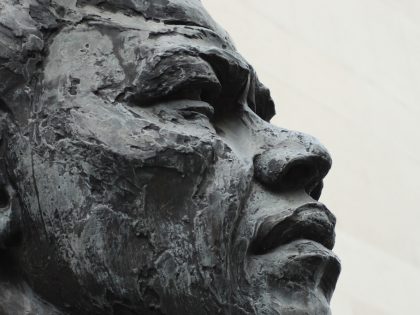
Fanon’s mission
The works of Frantz Fanon can be read as architectural renderings of rights, futures, and generations toward a “very different Afro-futurism.”

The works of Frantz Fanon can be read as architectural renderings of rights, futures, and generations toward a “very different Afro-futurism.”

The world is out of joint and Immanuel Wallerstein, one of its great public intellectuals, has left us—albeit with tools to battle the dying kicks of capitalism.

What censorship about articles in a French journal tells us about the state of France-Africa relations, imperial legacies and the impact these have on the production of knowledge about Francophone Africa.

The passing of American economist Ann Seidman has again spotlighted the impacts of committed scholarship on Africa.

Africa and its peoples were central to the great Immanuel Wallerstein's intellectual development and political activism.

The experience of studying Africa in London makes the writers question the validity of "African Studies" as is currently taught in Britain.

Delegates to 'Global Africa' at Oxford University write about how Zionists and their apologists target the academy.

One of South Africa's leading universities, UCT, released a curriculum change framework post-#RhodeMustFall. This is a critique by two alum.

In the Bukavu Series, researchers from two Congolese and two European universities explore how they interrogate violence in the DRC.

Remembering Joe Miller, a historian of eastern Angola and central Africa, who died at 79 on 12 March 2019.

The authors of an upcoming edited book to revisit Samr Amir's legacy in economics, write about what they wanted to achieve.

Samir Amin's life resembled that of Karl Marx: a man without a homeland, but one whose home was a chosen commitment to a historical project.

Displacing African Studies outside of Africa and emptying it of transformative potential, obscures its revolutionary legacy. The result: an impotent, banal field.

Many African countries are by now capitalist societies and analytically need to be treated as such when we talk about or study them.

Hyper-partisan politics and shallow journalism obscured the implications of the protests at Kwame Nkrumah University of Science and Technology.

Mbembe’s 'Critique of Black Reason' is useful for our analysis of the postcolonial present.

In the age of renewed tyranny and illiberalism, diverse political repertoires and modes of struggle from the continent of Africa offer inspiration.

The major problem with the term "decolonization" is its status as empty signifier, argues South African psychologist Wahbie Long.

Media studies scholar Sharon Sliwinski asks whether dreaming can be recast as a vital form of resistance to political violence. A review of her book.

Any deviation from economic orthodoxy in South Africa is made coterminous with the most extreme cases, like Zimbabwe and Venezuela.